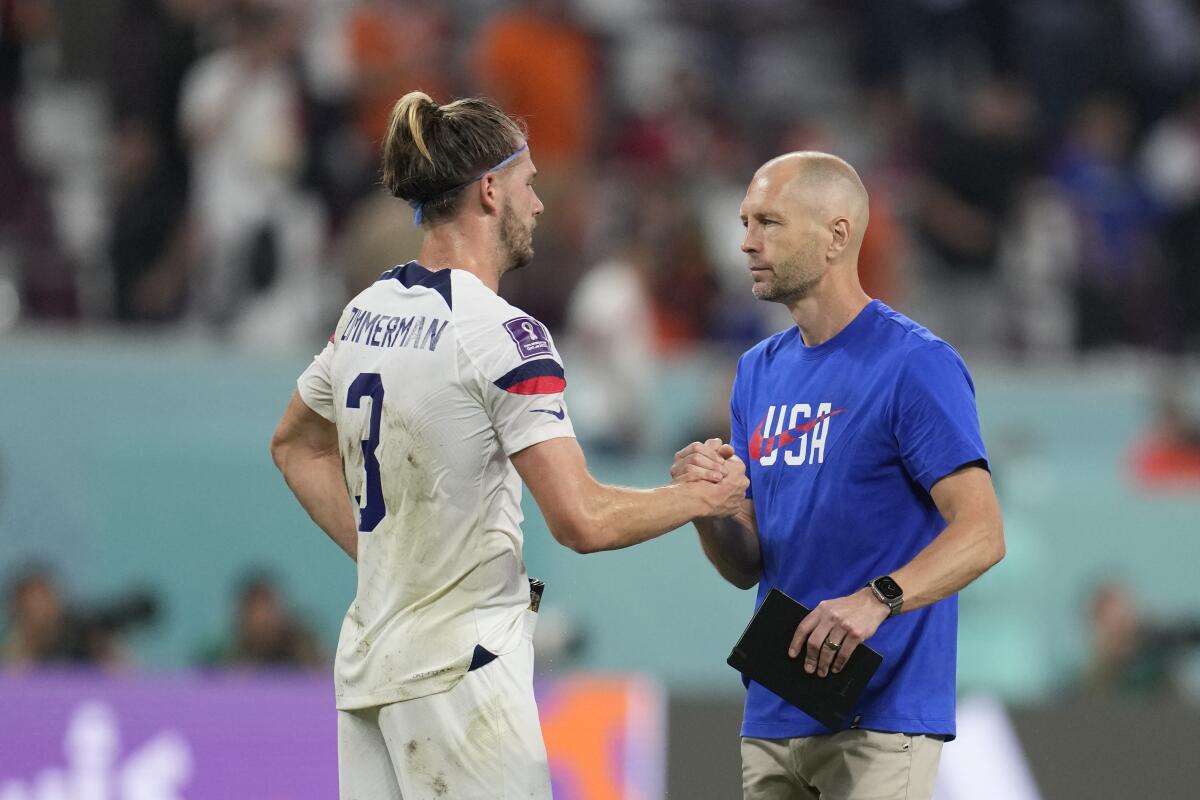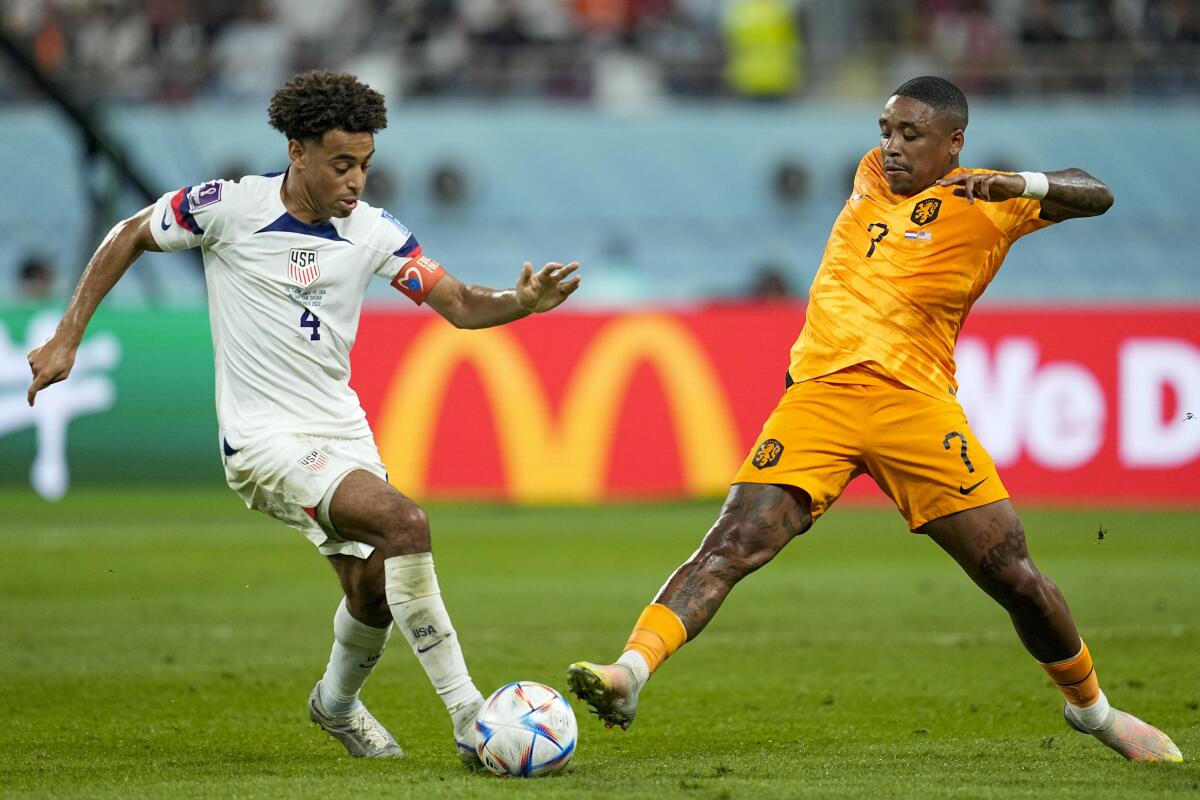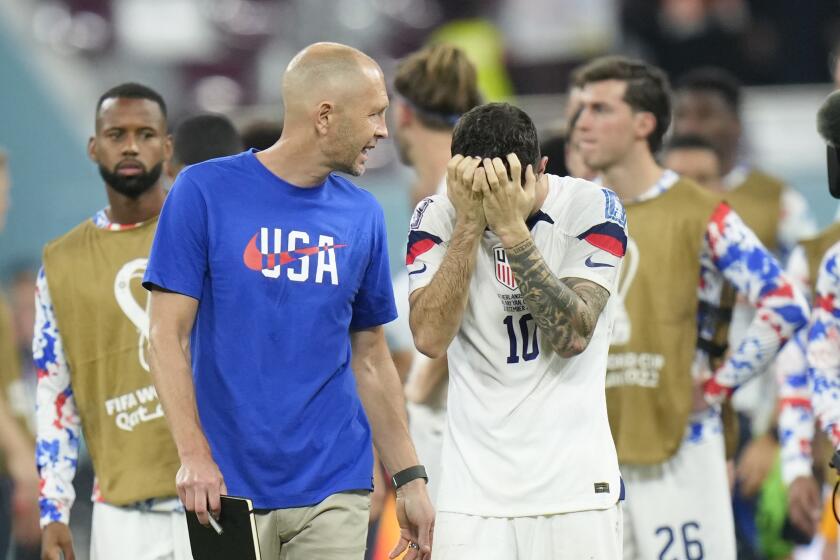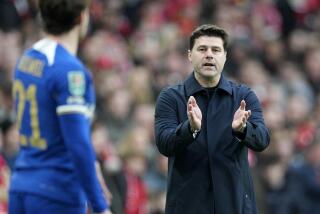Despite World Cup exit, U.S. knows it’s heading in right direction

DOHA, Qatar — On Sunday, the U.S. national team began checking out of the Kempinski hotel, the five-star beach resort that was its home during the World Cup. The reservation was good for another two weeks but after Saturday’s 3-1 loss to the Netherlands in the round of 16, the team was leaving early.
The players were taking home more than just memories and a few souvenirs though. They were departing convinced they could play with the best teams in the world. The U.S. is no longer happy to just be invited to FIFA’s big party. It now expects to go home with some of the prizes.
“I think that this team is different than previous generations by design,” said Alexi Lalas, a two-time World Cup player and now a Fox analyst. “I think this team has been nurtured from a very young age to believe that they deserve to be at the elite level and they deserve to play at the best clubs in the world; that they deserve to compete at the highest level when it comes to the World Cup and that they deserve to win in a way that we haven’t done in the past.
“That evolution has happened — not just the physical evolution, but the mental evolution of believing that as a soccer-playing nation, that we deserve to be there. Now nobody’s apologizing for anything. That inferiority complex is being shed. And any insecurities that we may have harbored in the past are long gone.”
That, Lalas said, is progress, which is good because the U.S. will be hosting FIFA’s next big party, along Canada and Mexico, in 2026. The last time the U.S. staged a World Cup, it finished third in its four-team group, its only win coming with the help of an own goal.
In four years, when the tournament returns, this team thinks it can win. And this team is that team because the core of the roster in Qatar, the second youngest in the tournament, will form the foundation of the team in 2026. That was the whole point of bringing such a young squad here in the first place.
The U.S. men’s national team didn’t advance at the World Cup, but it accomplished a different goal — changing the way the world views American soccer.
“The core group of players, this is 100% the building of their foundation of whether or not they’re going to do anything of real serious magnitude,” said ESPN’s Taylor Twellman, who played seven years with the national team.
“The rest of the world, when they have generations like these, they see positive, tangible results that they’re moving the meter, that they’re moving in the right direction. This is what the rest of the world does, where they have six to nine players in this generation. They’re not 28, 29, 30 when we normally get those players. This is a young group.”
The U.S. used eight players younger than 25 in the loss to the Netherlands. Two of them were teenagers three weeks ago. The captain, Tyler Adams, is 23, making him the youngest captain in the World Cup. No one who had a goal or assist for the U.S. in the tournament was older than 24.
(Finding someone, of any age, who can more consistently provide goals or assists should be U.S. Soccer’s primary objective between now and 2026; the U.S. averaged 11 shots a game in Qatar and put 13 on goals, but only three of them went in.)
Whether Gregg Berhalter will be around to continue guiding the team toward the promised land will be decided soon. Berhalter did a magnificent job building out the foundation Dave Sarachan started, auditioning 88 players in 60 games, winning the Gold Cup and Nations League tournaments and helping put together a U20 team that qualified for the 2024 Paris Olympics.

He has been an excellent recruiter, convincing dual nationals such as Ricardo Pepi, Yunus Musah, Sergiño Dest, Gio Reyna, Jesús Ferreira, Haji Wright and Jordan Pefok that their future was with the U.S. national team. The 26-man roster in Qatar included 11 dual nationals.
But Berhalter was outcoached in this World Cup and his contract expires this month. With the first training camp of the 2026 World Cup cycle opening at Dignity Health Sports Park in about six weeks, U.S. Soccer must decide if it should stay the course or bring in a new voice.
“For the last month, month and a half, I just only focused on the World Cup and focused on achieving things with this group,” Berhalter said when asked about his future Saturday. “The next couple of weeks, I’ll clear my head, I’ll sit down and think about what’s next.”
Fulham defender Antonee Robinson, one of 17 men on the U.S. roster who play in Europe, is among those who would like to see Berhalter return.
“He’s given a lot of boys that chance to develop with this group. And we’ve shown the type of football that we can play,” said Robinson, who made his international debut under Sarachan but became a regular under Berhalter. “I’ve certainly enjoyed playing every single minute. It’d be nice for him to continue this journey.”
Whether or not Berhalter continues the journey, he has helped set the U.S. on this path. The first part of the trip ended in the round of 16, where the Americans’ World Cup journeys ended in 2014 and 2010. So in that sense, nothing has changed.
But in terms of attitude, expectation and perception, everything has changed.
“Over the past years we haven’t gotten enough respect for U.S. Soccer and for the way that we play,” Juventus midfielder Weston McKennie said. “That’s something that we’ve been doing, and I think we accomplished a piece of that in this in this World Cup. We can only learn from the experience and just be prepared for the next four years.
“Americans are known as people that don’t give up and as a land of opportunity. This was a big opportunity for a lot of us in this tournament and I think we did really well with it.”









